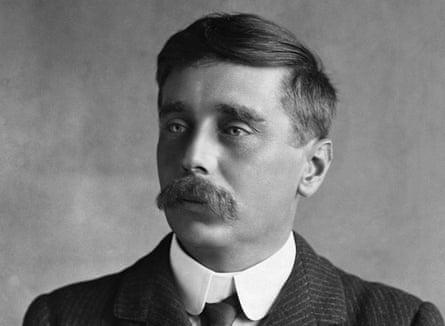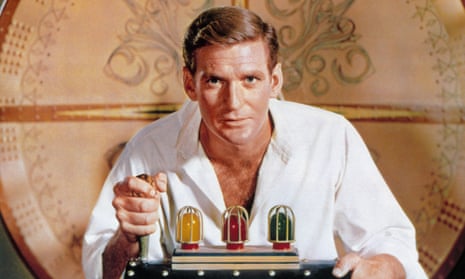Behind the leather spines that line the bookshelves of the London Library lie pages that have inspired some of the English language’s most influential stories. Now the library, founded in 1841, is to invite visitors to travel through time alongside the writer who is credited with first making time travel “a thing”: the author HG Wells.
Wells, creator of The Time Machine, as well as The War of the Worlds and The Invisible Man, was a library member for more than 50 years. Bram Stoker, author of Dracula, and Sherlock Holmes’s creator Arthur Conan Doyle were also regulars, as were Charles Dickens, George Eliot and William Makepeace Thackeray.
In February the central London venue is to host an immersive live show to mark the 125th anniversary of The Time Machine, Wells’s sci-fi tale that inspired writers of hundreds of time travel stories, mechanical and otherwise, from the long-running TV show Dr Who to the hit films Back to the Future and Hot Tub Time Machine, not forgetting novels such as Audrey Niffenegger’s The Time Traveler’s Wife.
Creation Theatre, the production company that last year brought a performance of Dracula back to the library where it was conceived by Stoker, has again collaborated on an evening show that will run for five weeks, and that promises an approximation of time travel itself.
“With this production we will get to go all around the library, rather than just stay in the reading room,” said Creation Theatre’s Lucy Askew. “That’s great, because some of the most exciting and atmospheric parts of the building are the book stacks at the back and the Times room underneath, where every copy of the newspaper is stored.”

The award-winning radio playwright Jonathan Holloway has re-invented Wells’s novel to create a world where the present is endlessly shifting and the concept of time passing dissolves. His adventure, billed as “surreal and psychedelic”, uses research from the Wellcome Centre for Ethics and Humanities to challenge common assumptions, as groups of 20 are moved around the library in the darkness of the night. A guide, or time traveller, with the aid of actors, hi-tech projections and wireless headphones, will lead the audience to consider, among other ideas, the possibilities of human body augmentation and the state of the world if vaccination rates continue to fall.
“We have worked with leading scientists to compare Wells’s vision of the future with current academic ideas, some of which are terrifying,” said Askew. “At the end the audience can choose whether they wait to find out which are genuine predictions and which have been invented.”
Wells wrote his novella in monthly instalments for the journal The New Review. It opens in the home of “The Time Traveller”, a well-to-do scientist attempting to persuade his dinner guests that time travel is possible in a vehicle he has just built. He embarks , on a trip into the distant future where mankind has divided into “Morlocks”, barbarian underground workers, and ineffectual herds of pampered “Eloi”.
Rather than focusing on time machines, earlier science fiction stories had featured several characters who slept to awake in the future, like Washington Irving’s Rip Van Winkle, an 1819 short story, in which a sleeping villager in the Catsgill Mountains skips 20 years and so misses the American Revolution.
